Choosing the best cocoa powder for baking, with all the brand names available in your local grocery store is likely confusing, to say the least. There are numerous types of cocoa powder, including baking cocoa, chocolate powder, unroasted cacao powder, red cocoa powder, and more.
The minute differences, whether in terms of flavor, processing, or the amount of cocoa butter they retain, lie in the fact that the manufacturers' technology, formulation, and even branding all differ. To start clearing things up, cacao powder, black cocoa powder, and baking cocoa are all interchangeable names for types of cocoa powder.
They're also all derived from the same source - the cacao bean. In this article we debunk the myth that these are all different products, as they're all different types of the same product. We even dig into the differences between natural vs dutch-processed cocoa, how to store cocoa powder, and which are truly the best cocoa powder brands.
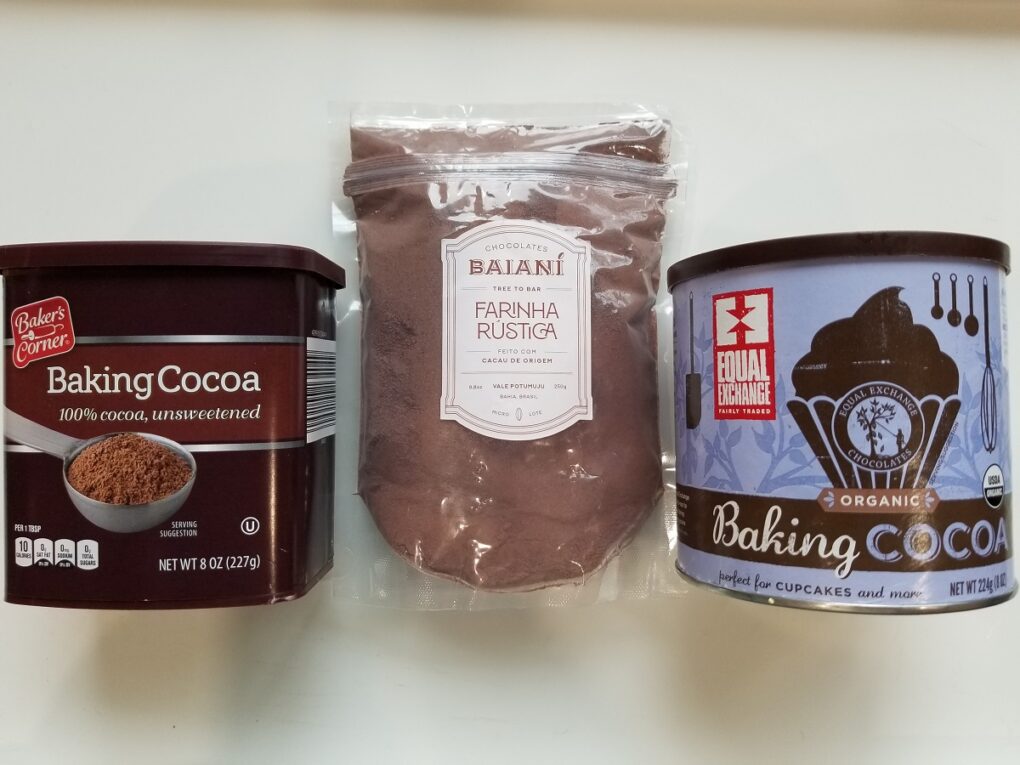
Jump To
What is Cocoa Powder?
Cocoa powder comes from the seeds of the Theobroma cacao tree, native to Central and South America’s tropical regions. However, the trees are now grown in various parts of the world, with 70% of the world’s cocoa beans coming from West African countries and some parts of Asia.
It's technically what's left over after pressing out most of the cocoa butter, the fat of the cacao beans, from the mass of ground cacao. This powder tends to taste somewhat bitter and is frequently combined with sugar, cocoa butter, and other ingredients to make homemade chocolate, though these solids are also the element which gives chocolate its rich flavor.
In recent decades, cocoa powder has alsobecome a common ingredient in baked goods like cakes, brownies, and cookies, though it’s also used to prepare hot chocolate and other chocolate-flavored beverages.
Producing the powder starts when cacao beans are harvested from the cocoa tree pods, fermented, dried, and roasted. The cocoa beans are then cracked, and the outer shell is removed after roasting, leaving only the cocoa nibs.
After that, the cocoa nibs are processed into a paste called chocolate liquor (cacao paste or cacao mass). Then, the liquid is pressed to remove roughly 75% of its fat (cocoa butter), leaving behind a solid cake that's less than 20% fat. This cake is then ground into a dry, unsweetened, fine powder known as cocoa powder.
On average, a single tablespoon of unsweetened cocoa powder (5g) contains 12 calories, 1g of protein, 0.7g of fat, and 3g of carbs. Natural (regular) cocoa powder, Dutch-processed cocoa powder, and Alkaline (or black) cocoa powder are all commercial forms of this same product, with distinct flavors and features.
But more on this later. First, we’ll debunk the myth circulating on the internet that cocoa powder, cacao powder, and baking cocoa are all different.
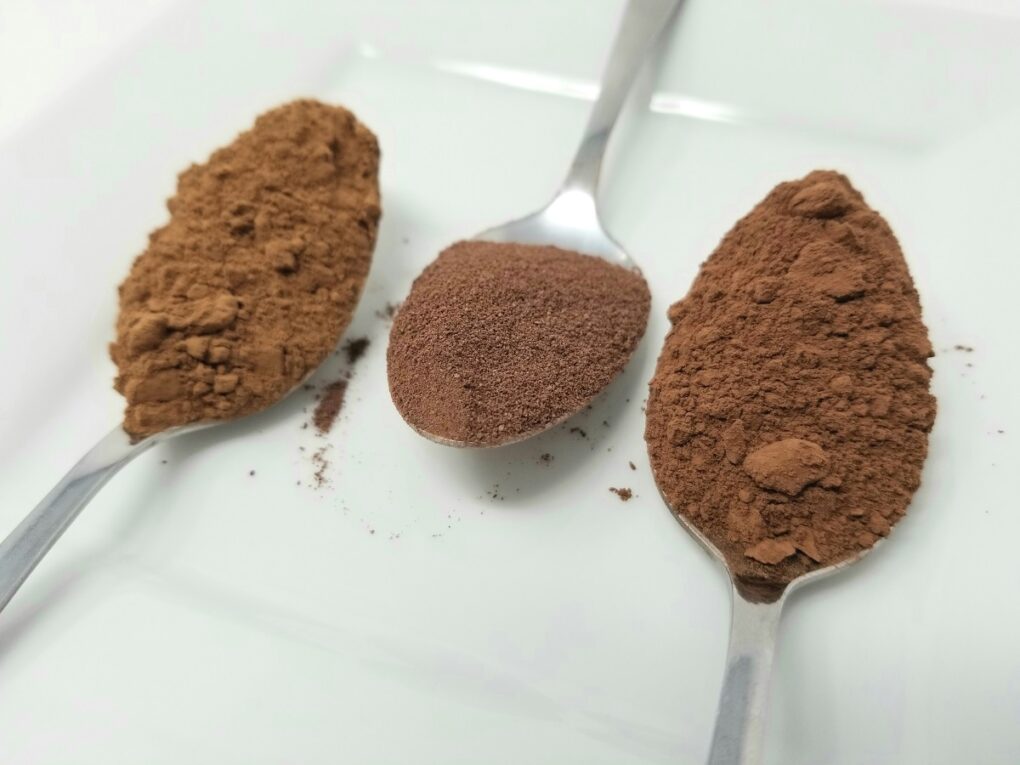
Cacao Powder vs. Cocoa Powder vs. Baking Cocoa
The hard truth is that cacao powder, cocoa powder, and baking cocoa are all the same. There’s no definitive difference between these baking ingredients. They’re merely marketing choices from various brands to try to differentiate their goods from the rest of the competitor products out in the market.
The only actual distinction between cocoa powder, cacao powder, and baking cocoa is the meaning and context of the words cacao and cocoa in their respective languages and countries of origin.
The word 'cacao' is associated with the Olmec and Mayan word kakaw(a). At the same time, cocoa is a distorted English term of the original word created when the prized cacao seeds made their way to European shores and eventually into the English lexicon.
These days cacao and cocoa are completely interchangeable linguistically, though people tend to associate is with the more botanical definition of ‘cacao,’ referring to the Theobroma cacao plant, which has a much healthier and natural association.
Cocoa, on the other hand, has a cheaper and less healthy attribution due to the use of 'cocoa' to refer to sweetened, milk-laden beverages popular with kids. The general usage of the terms 'cacao' and 'cocoa' within the food industry tends to be divided along these same lines.
Cacao typically refers to the raw material or a more natural (raw) product. In contrast, cocoa refers to commercialized beverages (i.e., hot cocoa) or mass-marketed (and cheap) cocoa snacks like biscuits, wafer sticks, cakes, and pies. However, some manufacturers still choose to refer to their products as 'cacao powder' after processing.

Cocoa Powder Benefits
Because cocoa powder is derived from the cocoa bean itself, it contains all the fantastic nutritional value of the seeds. Cocoa powder is rich in nutrients, including fiber and minerals like iron, magnesium, phosphorus, calcium, and potassium.
The powder also contains a significant amount of theobromine, a chamical cousin of caffeine which helps reduce inflammation and protect you against diseases. It’s high in antioxidants, notably flavonols, and associated with vast health benefits, including reduced risk of heart attack, improved cognitive functions, and protection against cancer and diabetes.
Due to the processing method, some cocoa powders, such as Dutch-processed cocoa powder, may have lower antioxidant levels and can be more neutral-tasting than others. Ironically, while cocoa powder is low in calories, fat, and sugar, it’s typically used in recipes that include other ingredients that increase the overall calories in a product.
So if you want the maximum health benefits from this ingredient, opt for higher-quality cocoa powders in smoothies and beverages rather than in baked goods.
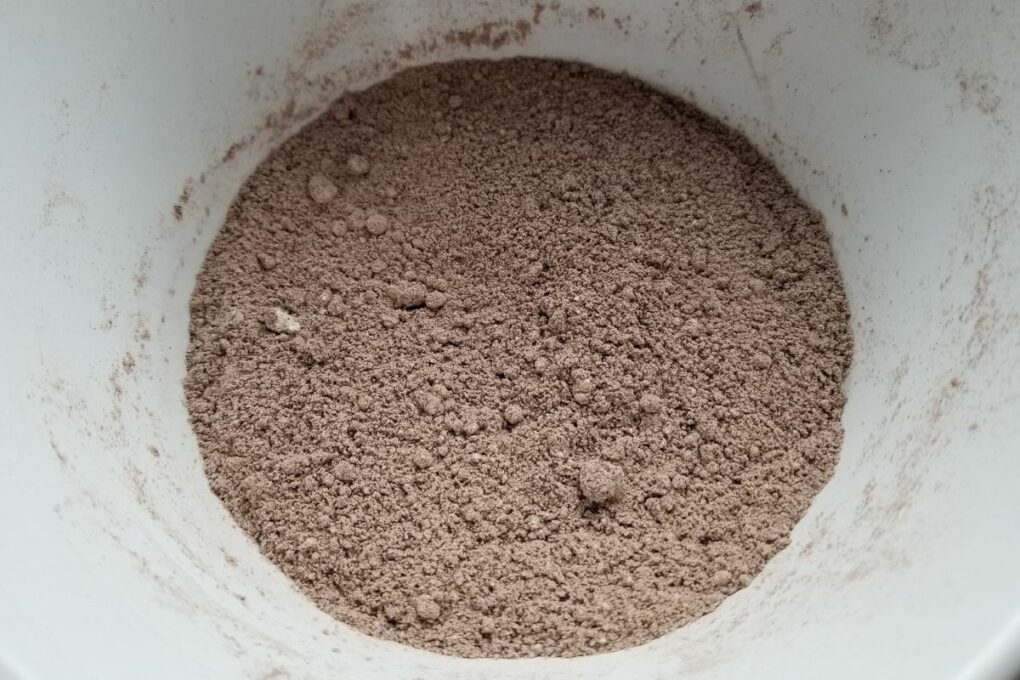
How to Store Cocoa Powder
When storing cocoa powder, remember that heat, light, and moisture exposure may cause it to spoil or lose its flavor more quickly. Follow these simple tips for cocoa powder storage so that your powder lasts longer in terms of flavor and texture.
Place the cocoa powder in an airtight container with a tight-fitting lid. This will keep moisture out and prevent the cocoa powder from absorbing scents or flavors from other goods in your cupboard. Once opened, you can use a sealer that keeps the air out, or a vacuum sealer or even a ziploc bag.
Once opened keep it cool, dry, and away from direct sunlight by storing it in your pantry or lower cabinet. All chocolate products come with a best-before or use-by date. This is the manufacturer’s way of telling you that the product will be in tip-top quality, taste, and texture before that date, but will still be safe to eat for years afterwards, if store properly.
Sweetened vs. Unsweetened Cocoa Powder
As the name suggests, the main difference between sweetened and unsweetened cocoa powder is whether sugar is added to the cocoa powder. Unsweetened cocoa powder is synonymous with natural or baking cocoa. It’s prepared by grinding roasted cocoa beans and extracting the cocoa butter, leaving a dry, often bitter powder.
It’s adaptable and has a deep, rich flavor without sugar, but depending on the application, sugar might be added to the recipe later on. However sweetened cocoa powder is prepared by combining cocoa powder with sugar and sometimes other substances, such as milk powder.
It’s sweeter and therefore tends to taste less bitter than its unsweetened counterpart, and is frequently used to make hot cocoa and other recipes requiring a sweet chocolate flavor. You’ll tend to be using fewer sweeteners in a recipe using sweetened cocoa powder than in a recipe that calls for baking cocoa.
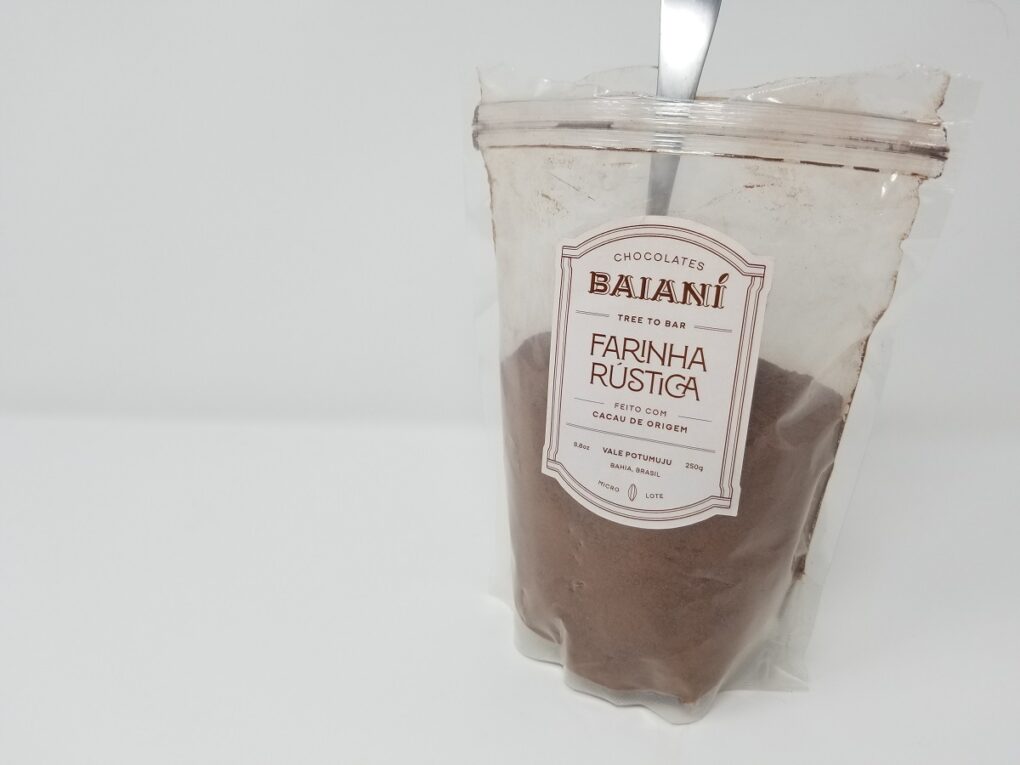
Natural vs. Dutch Process Cocoa Powder
Typically, a recipe specifies whether it needs natural or Dutch-process cocoa powder. Though both cocoa powders are made from cacao beans, the processes by which they're made differ slightly. After being ground, natural cocoa powder remains unprocessed and slightly acidic.
Depending on origin and processing quality, natural cocoa powder has a pH level between 5 and 6, and has a strong somewhat citrusy flavor. It’s lighter (often light brown in color with an almost reddish tint), tastes mildly acidic, and has a more influential flavor in recipes.
It can then be processed further to produce other types of cocoa powder, such as Dutch-processed or black cocoa powder. Dutch process cocoa powder is essentially a step beyond natural cocoa powder, in that it’s rinsed with a basic sodium hydroxide or potassium bicarbonate solution to neutralize the acidity and raise the pH to a neutral 7.
This likewise results in a darker cocoa product with a more robust, darker, almost pure chocolate flavor with more slight bitterness. Dutch process cocoa powder, also known as alkalized or Dutched cocoa powder, has a smoother, earthier taste and deeper chocolatey flavor.
Dutch process cocoa is non-acidic and will not react with baking soda to form carbon dioxide, which aids in rising. It solely relies on baking powder to produce this effect, so when baking cakes and cookies, it’s best to stick with the type of powder recommended in your recipe.
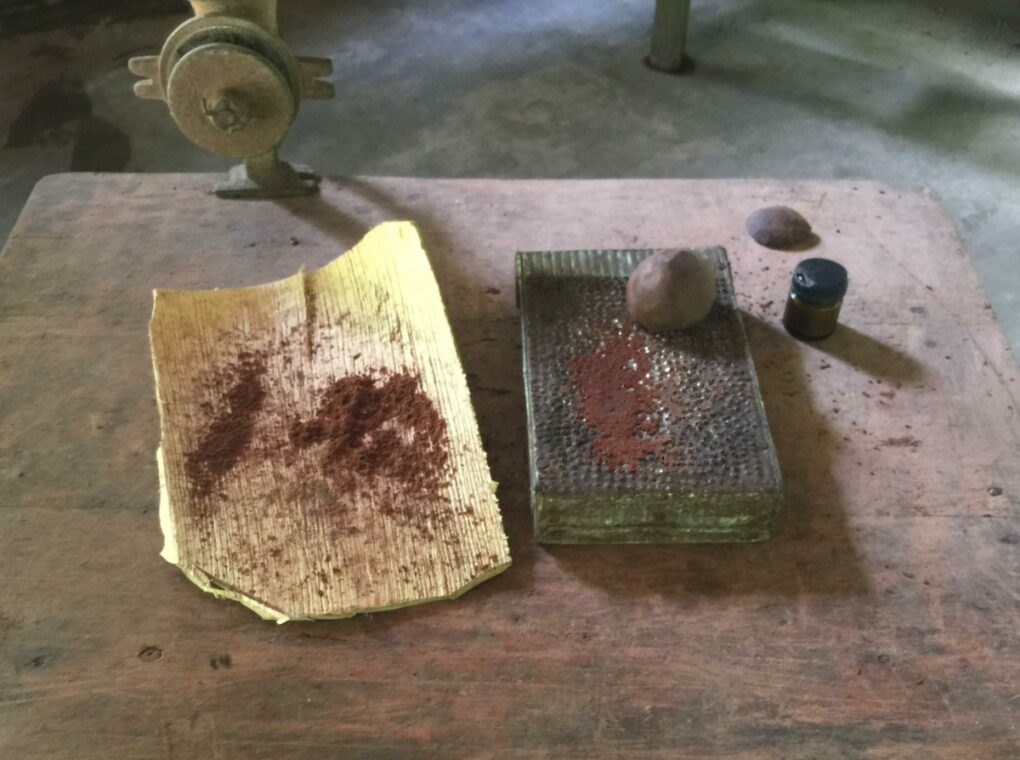
Best Cocoa Powders (Brands)
Any great cocoa powder brand starts with good-quality cocoa beans. However, almost 90% of all the world’s chocolate is made from poor-quality bulk cocoa beans that have been harvested with the aid of slave labor, child labor, and other unfair practices in the cacao farming industry.
The larger chocolate business is still far from being completely socially responsible, but it has taken some strides to rectify these questionable practices. These continued unethical practices include most of the major chocolate manufacturers, such as Hershey’s, Cadbury, and Nestle, so they're left off the list for ethical and quality reasons.
It’s entirely up to us, the consumers, to be skeptical of what we buy. So when in doubt, look for small-scale chocolate producers who use bean-to-bar or, even better, tree-to-bar methods. That said, here’s a quick run-down of the best cocoa powder brands out there, both ethically sound and high in quality.
Valrhona Cocoa Powder
Though Valrhona’s cocoa powder is a high-ticket item, it’s worth the price. Made from finely ground Grand Cru cocoa beans, Valrhona cocoa powder is low in fat, Kosher certified, gluten-free, unsweetened, and quite aromatic.
It’s Dutch-processed, however, which means it was processed with alkali. It has a pure chocolaty taste that lends remarkable richness in flavor and a deep-hued color that make it ideal for baking brownies, mousses, and other chocolate desserts.
This exceptionally fine powder dissolves easily when making hot chocolate, as well, and its strong cocoa powder, with the intense aroma of roasted cocoa beans, lends complexity to its flavor and a noticeably creamier cup of hot chocolate.
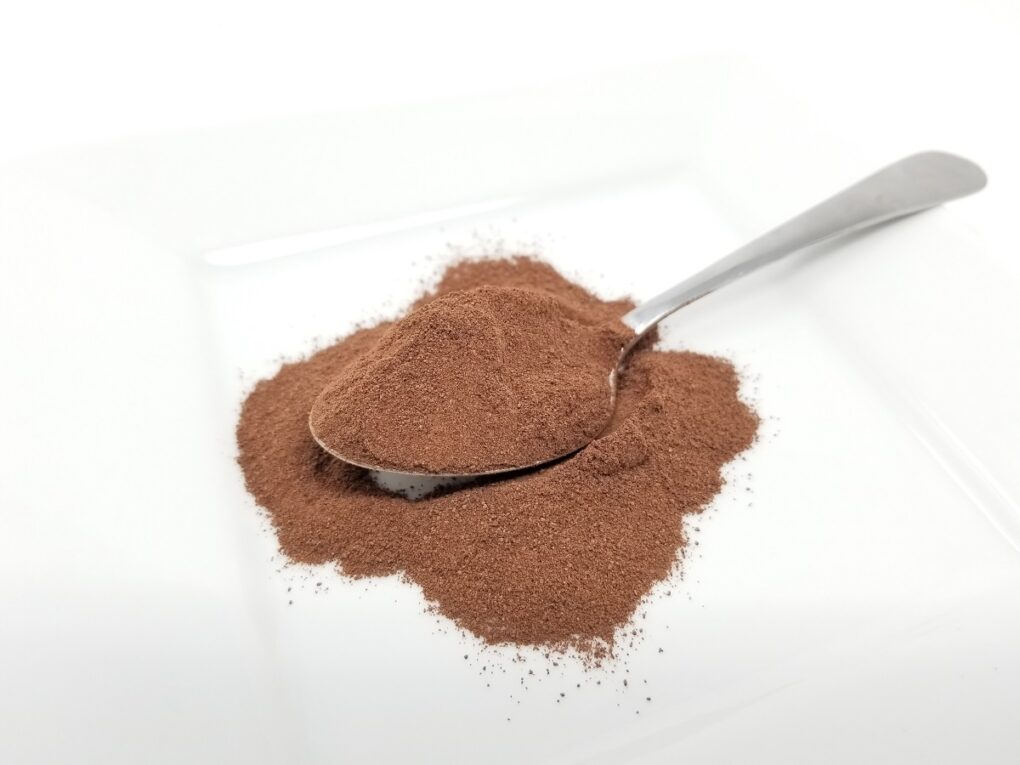
Republica Del Cacao
Republica Del Cacao’s cacao powder has the highest natural cacao butter content available today, making it lusciously rich and fatty. Boasting a beautiful mahogany wood color, and a crisp and well-rounded flavor, this cocoa powder will boost the color and taste of any baked goods.
This product is 100% cacao with 22-24% fat, Kosher certified, non-GMO, non-ionized, and made with zero milk and sugar. However, it may be hard to find outside of Ecuador and Peru, though they're slowly expanding their sales regions.
Lake Champlain Chocolates Unsweetened Cocoa Powder
Lake Champlain Chocolate Powder is excellent for baking brownies and cakes, making molés, and making delectable hot chocolates. This sugar-free cocoa powder has been Dutch-processed, which means that its acidity has been decreased so that it only offers a serious, full-chocolate flavor and deep color.
Real Simple Magazine deemed it the best Dutch-process cocoa, with all ingredients certified USDA organic, fair-trade, and Kosher, with them declaring it to have a smooth and creamy texture optimal for baking.
Guittard Cocoa Rouge Unsweetened Cocoa Powder
The Cocoa Rouge unsweetened cocoa powder from Guittard has a noticeable red color (hence the name), robust fudgey flavor, and deep chocolate scent. Red Dutch process cocoa powder, also known as Dutched or alkalized cocoa, has a high-fat content and is even required in some recipes.
Don’t be misled by the seemingly artificial red color, as it won’t affect the color of your baked goods. It has a mellow bittersweet chocolate flavor with a warm aftertaste, ideal for cakes and pastries. The strong cocoa flavor with subtle bitterness provides the perfect complement to other ingredients with a smooth and mild texture.
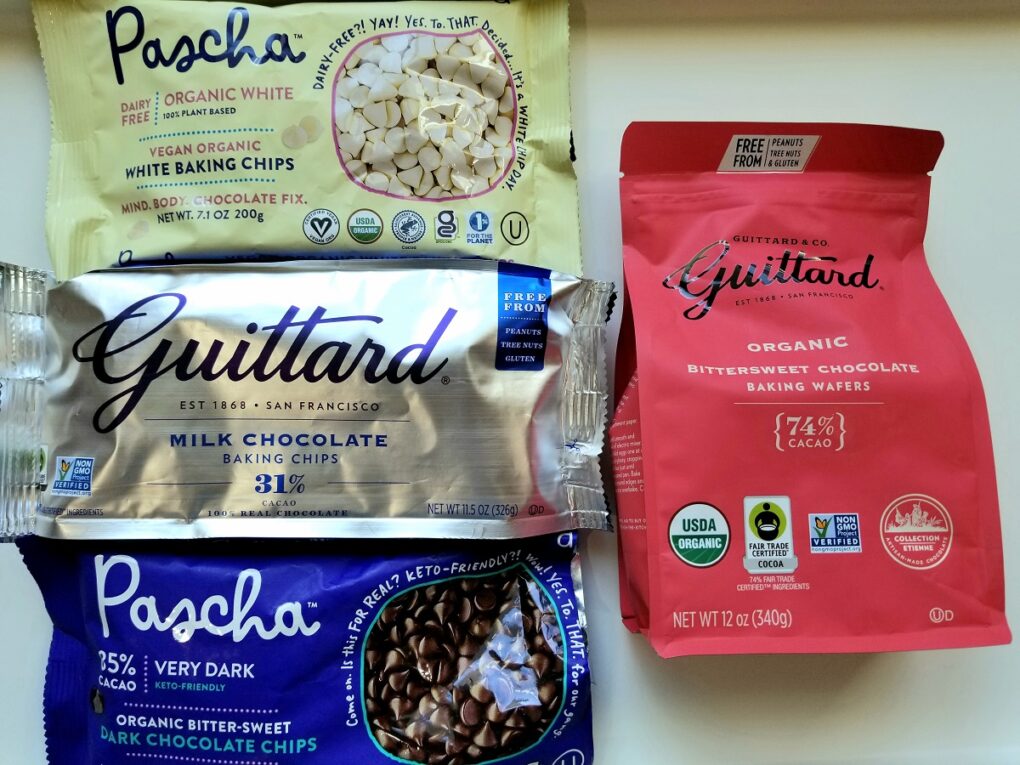
Scharffen Berger Chocolate Maker 100% Unsweetened Cocoa Powder
Scharffen Berger Chocolate Maker’s 100% unsweetened (natural) cocoa powder has all the flavors of rich dark chocolate, just as their bars do. Hand-selected from roasted, well-fermented cacao beans from tropical regions around the equator, they roast, blend, grind, and press them to chocolate perfection.
Unlike Dutch-process cocoas, there are no chemicals or additives that go in their premium cocoa powder, a formula that's been brought back to 1997's high quality since their company was bought back from Hershey's and reprivatized.
Viva Naturals Organic Cacao Powder
Viva Naturals Organic Cacao Powder is one of very few non-alkalized cocoa powders on the market, said to be made from the 'highest grade of Peruvian Criollo cacao beans.' Its light brown color betrays its natural state, loved by many for its rich taste and bold chocolate flavor.
One of the things that sets this powder apart is that it's USDA certified organic, as well as non-GMO, gluten-free, and vegan, making it an ethical choice for people with dietary restrictions. It's also one of the highest-rated cocoa powders on Amazon, general beloved for its fine texture and great taste.
I highly recommended it for baking or pastry, in addition to sorbets & ice creams, candies, chocolate spreads, and even chocolate glazes, thanks to its fine texture.
Cacao Noel Black Cocoa Powder
Cacao Noel is a rather mysterious brand; they don't publicise where their cacao is sourced from, though it seems to be Ivorian, and after lots of online sleuthing, I cannot find out what parent company manufactures their products. However they have a good reputation amongst pastry chefs, and their ultra-dutched black cocoa powder is well-liked for its low fat content.
The brand seems to have previously been a modest, relatively obscure French artisan chocolate manufacturer. But now they produce a range of premium baking chocolates and cocoa powders designed for both professional and home bakers, and widely available from baking outlets.
This is the only black cocoa powder on the list, in part because it's hard to find qualit black cocoas. Noel Ultra, a dark cocoa powder, is a Dutch-processed (alkalized) cocoa powder with a 10% fat content, which is remarkably low. Rich and complex in flavor, it creates dark, thick hot cocoa and is great for baked goods. Alternately, try Anthony's Black Cocoa Powder.
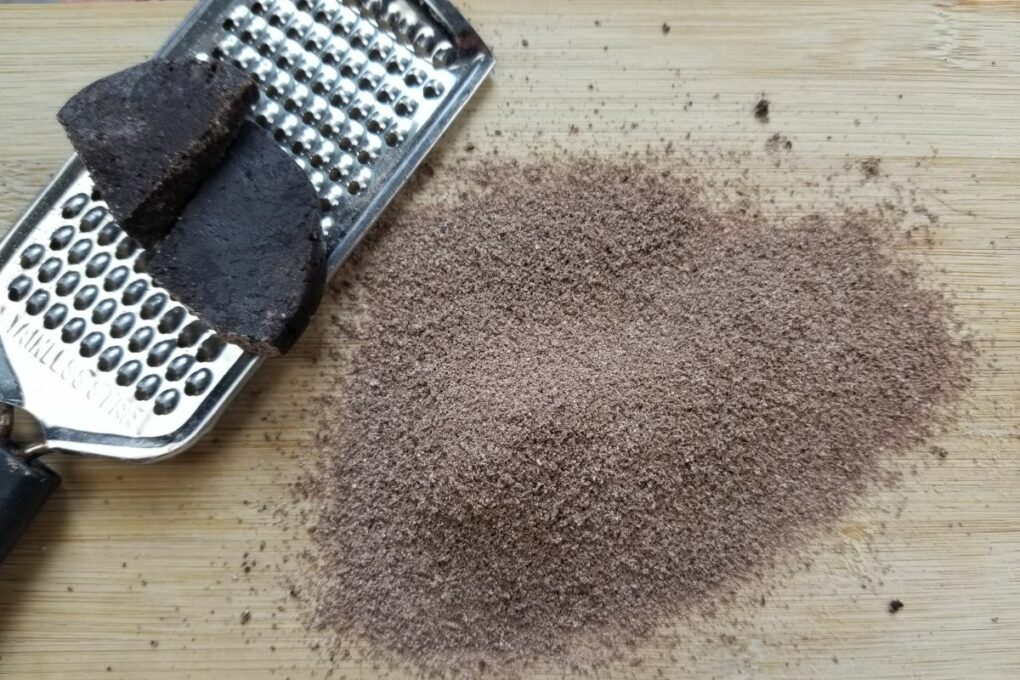
Cocoa Powder FAQ
Yes, cocoa powder contains both nutrients and vast & varied health benefits. The cacao bean is abundant in theobromine and energy-boosting caffeine, as well as other nutrients. All of these are linked to various health benefits, such as better heart health, increased energy and cognitive function, and many more.
Yes, you can consume cocoa powder daily. Regular consumption can provide various health benefits, as cacao, the fruit from which cocoa powder is processed, is known to boost metabolism and help the body metabolize fat better. Cocoa powder can be made into brownies and cookies or go into your breakfast smoothies or hot chocolate, though keep in mind any unhealthy ingredients accompanying it. A good serving size is a few heaping tablespoons in the morning to replace coffee, or in the late afternoon for a relaxing treat.
Yes, cocoa powder is the same as cacao powder. The only difference lies in using the term cocoa or cacao, but cocoa powder, cacao powder, and baking cocoa are all the same and can be used interchangeably.
Cocoa powder is made from Theobroma cacao seeds that have been harvested, fermented, dried, and roasted, then pressed to remove most of the fat. The cocoa beans are then cracked, and the outer shell is removed after roasting, leaving behind the cocoa nibs. These nibs are then crushed into a paste and pressed to extract most of the oil, leaving solids cocoa cakes behind. These are then ground into ultra-fine powder, known as cocoa powder.
Yes, you can add cocoa powder to coffee, especially when pulling an espresso. Alternately, adding a tablespoon of unsweetened cocoa powder to your cup of coffee can boost your health, largely with the benefits of theobromine. Look for organic cacao powder to get the most varied benefits.

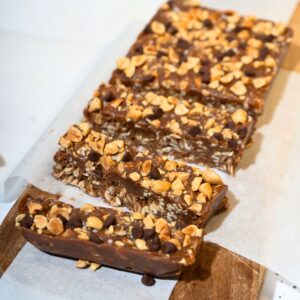
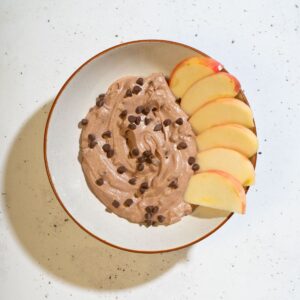


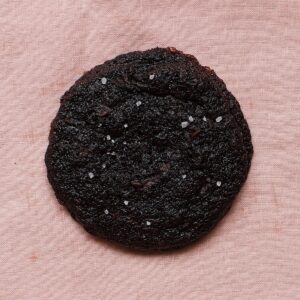





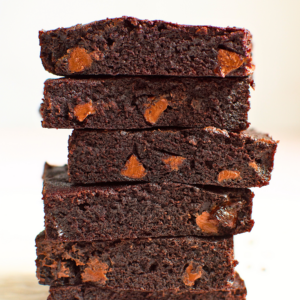


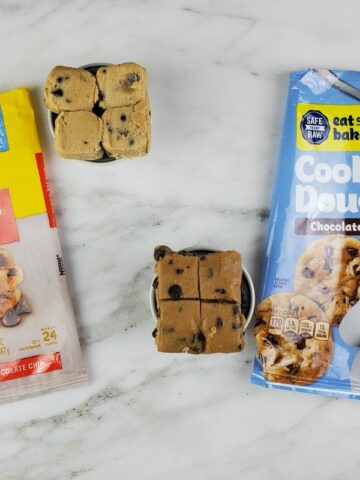
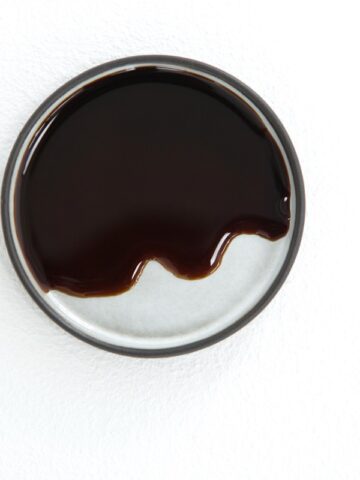

Michael Ann
Thank you so much for taking the time to carefully research the substitute amount of cocoa powder to 100% dark chocolate. internet sent me here for my answer. Glad they did!
Max
Thank you for your kind comment!